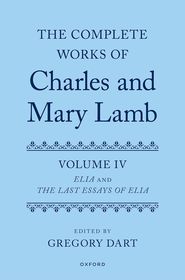
Linguistics across Disciplinary Borders
The March of Data
Sorozatcím: Language, Data Science and Digital Humanities;
-
20% KEDVEZMÉNY?
- A kedvezmény csak az 'Értesítés a kedvenc témákról' hírlevelünk címzettjeinek rendeléseire érvényes.
- Kiadói listaár GBP 100.00
-
47 775 Ft (45 500 Ft + 5% áfa)
Az ár azért becsült, mert a rendelés pillanatában nem lehet pontosan tudni, hogy a beérkezéskor milyen lesz a forint árfolyama az adott termék eredeti devizájához képest. Ha a forint romlana, kissé többet, ha javulna, kissé kevesebbet kell majd fizetnie.
- Kedvezmény(ek) 20% (cc. 9 555 Ft off)
- Kedvezményes ár 38 220 Ft (36 400 Ft + 5% áfa)
Iratkozzon fel most és részesüljön kedvezőbb árainkból!
Feliratkozom
47 775 Ft

Beszerezhetőség
Megrendelésre a kiadó utánnyomja a könyvet. Rendelhető, de a szokásosnál kicsit lassabban érkezik meg.
Why don't you give exact delivery time?
A beszerzés időigényét az eddigi tapasztalatokra alapozva adjuk meg. Azért becsült, mert a terméket külföldről hozzuk be, így a kiadó kiszolgálásának pillanatnyi gyorsaságától is függ. A megadottnál gyorsabb és lassabb szállítás is elképzelhető, de mindent megteszünk, hogy Ön a lehető leghamarabb jusson hozzá a termékhez.
A termék adatai:
- Kiadó Bloomsbury Publishing (UK)
- Megjelenés dátuma 2024. február 22.
- Kötetek száma Hardback
- ISBN 9781350362260
- Kötéstípus Keménykötés
- Terjedelem264 oldal
- Méret 238x160x22 mm
- Súly 548 g
- Nyelv angol
- Illusztrációk 45 bw illus 531
Kategóriák
Hosszú leírás:
"
This volume highlights the ways in which recent developments in corpus linguistics and natural language processing can engage with topics across language studies, humanities and social science disciplines.
New approaches have emerged in recent years that blur disciplinary boundaries, facilitated by factors such as the application of computational methods, access to large data sets, and the sharing of code, as well as continual advances in technologies related to data storage, retrieval, and processing. The ""march of data"" denotes an area at the border region of linguistics, humanities, and social science disciplines, but also the inevitable development of the underlying technologies that drive analysis in these subject areas.
Organized into 3 sections, the chapters are connected by the underlying thread of linguistic corpora: how they can be created, how they can shed light on varieties or registers, and how their metadata can be utilized to better understand the internal structure of similar resources. While some chapters in the volume make use of well-established existing corpora, others analyze data from platforms such as YouTube, Twitter or Reddit. The volume provides insight into the diversity of methods, approaches, and corpora that inform our understanding of the ""border regions"" between the realms of data science, language/linguistics, and social or cultural studies.
Tartalomjegyzék:
List of Figures
List of Tables
List of Contributors
Acknowledgements
Introduction, Steven Coats (University of Oulu, Finland) and Veronika Laippala (University of Turku, Finland)
Part I. Methods for Data Collection, Analysis, and Visualization
1. Using Automatic Speech Recognition Transcripts for Linguistic Research, Steven Coats (University of Oulu, Finland)
2. Low-code Data Science Tools for Linguistics: Swiss Army Knives or Pretty Black Boxes? Jukka Tyrkkï¿1⁄2 and Daniel Ihrmark (Linnaeus University, Sweden)
3. The Visualisation and Evaluation of Semantic and Conceptual Maps, Gerold Schneider (University of Zurich, Switzerland)
Part II. Corpus Construction, Registers, and Genres
4. Toward Automatic Register Classification in Unrestricted Databases of Historical English, Liina Repo (University of Turku, Finland), Brett Hashimoto (Brigham Young University, USA), Aatu Liimatta (University of Helsinki, Finland), Lassi Saario (University of Helsinki, Finland), Tanja Sï¿1⁄2ily (University of Helsinki, Finland), Iiro Tiihonen (University of Helsinki, Finland), Mikko Tolonen (University of Helsinki, Finland), and Veronika Laippala (University of Turku, Finland)
5. Exploring the Interplay of Registers and Topicality in a Web-Scale Corpus, Valtteri Skantsi, Veronika Laippala, and Aku Kyrolï¿1⁄2inen (University of Turku, Finland)
6. Towards 'Large and Tidy': Establishing Internal Structure in Mega-Corpora, Axel Bohmann (University of Freiburg, Germany)
Part III. Social Media, Discourse, and Meanings
7. Multi-Modal Considerations for Social Media Discourse Analysis: A Specialised Corpus of Twitter Commentary on 'Working from Home', Christopher Fitzgerald (Mary Immaculate College, Ireland), Geraldine Mark (Cardiff University, Wales), Anne O'Keeffe (Mary Immaculate College, Ireland), Dawn Knight (Cardiff University, Wales), Justin McNamara (Mary Immaculate College, Ireland), Svenja Adolphs (University of Nottingham, England), Benjamin Cowan (University College Dublin, Ireland), Tania Fahey Palma (University of Aberdeen, Scotland), Fiona Farr (University of Limerick, Ireland), and Sandrine Peraldi (University College Dublin, Ireland)
8. Exploring Patterns of Self-Identification in the LGBTQ+ Reddit Corpus, Laura Hekanaho (University of Helsinki/Tampere University, Finland), Turo Hiltunen (University of Helsinki, Finland), Minna Palander-Collin (University of Helsinki, Finland); and Helmiina Hotti (University of Helsinki, Finland)
Index













